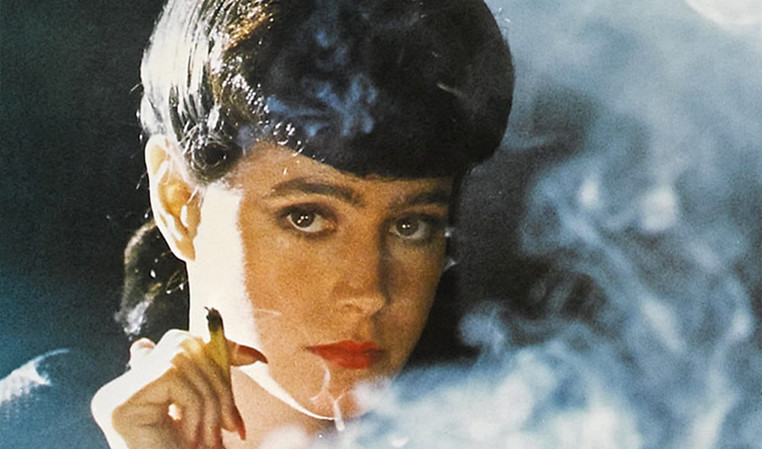
Ridley Scott is one of the most successful directors of all time: combined, his films have grossed $1.5 billion theatrically alone, while his work in the science fiction and historical drama genres have set the standard for generations of filmmakers.
Having directed sci-fi masterpieces like Alien and Blade Runner, to historical epics like Gladiator and Kingdom of Heaven, to the feminist classic Thelma & Louise, Ridley Scott has produced a variety of films to great financial and critical success. Never one to rest upon his laurels, Scott’s output over the past four decades has spanned multiple genres to a mixture of success and failure, commercially and otherwise.
A master of creating detailed worlds in which his characters struggle and strive, Scott’s work is distinguished by an individual fighting against extraordinary circumstances and the epic scale of his productions. Sometimes overwhelming in detail while losing the plot, Ridley Scott has not put out an immaculate filmography but a very interesting one nonetheless.
While a “worst-to-best” list inherently passes judgement on the quality of a director’s films, it’s important to note that any one of Scott’s films that have landed in the “Top 10” of this list grossly outweigh most director’s best effort. Although not perfect, his films are always well thought-out and made with the utmost professionalism and care.
24. GI Jane (1997)
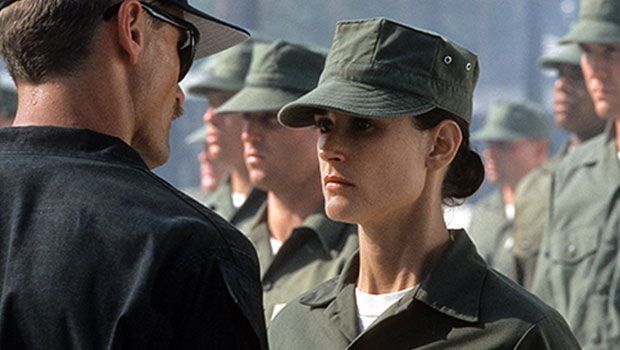
While working within the same female empowerment themes that succeeded in Alien and Thelma & Louise, Ridley Scott made arguably his worst film, GI Jane, about a female lieutenant that enters training for the U.S. Navy Combined Reconnaissance Team in a politically motivated attempt to prove that a woman can achieve within a male-dominated arena of the military.
Although memorable female characters either overcoming or confronting gender prejudice has served him well in the past, this Demi Moore-starring drama fell flat in many ways: its forced premise, hammy acting (Anne Bancroft’s Senator character in particular chews all of the scenery she can get her hands on), and overcooked-but-obvious social equality message (women can do what men can, you see) makes for a dire and (worse) boring viewing experience. Although Moore gives a strong performance, it isn’t enough to save GI Jane from the bottom of Scott’s filmography.
23. Exodus: Gods and Kings (2014)
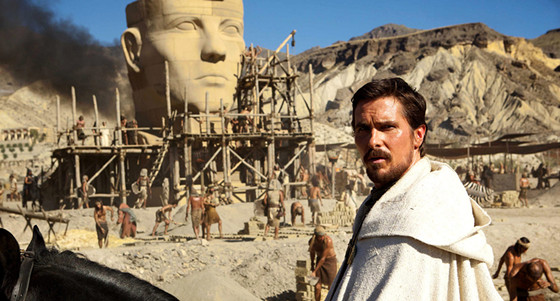
Ridley Scott is no stranger to the historical epic: some of his best work, including Best Picture-winner Gladiator and directorial debut The Duellists, has him meticulously studying and recreating the distant past to create slick period pieces for modern audiences to enjoy. So it made sense when Scott announced that he would take on a Biblical epic–the story of Moses–in the big-budget Exodus: Gods and Kings.
But Scott–a staunch atheist–miscalculated the potential audience of the film. Instead of leaning on the religious aspects of the story, he created a CGI-filled spectacle filled with overwrought performances that felt more at home in a summer blockbuster than a story from the Old Testament.
Opening to negative reviews, the film was a box-office bomb, recouping only half of its $268 million budget. Instead of taking literally one of the oldest stories in the world and making it new, Scott made an expensive retread of The Ten Commandments without the conviction.
22. Someone To Watch Over Me (1987)
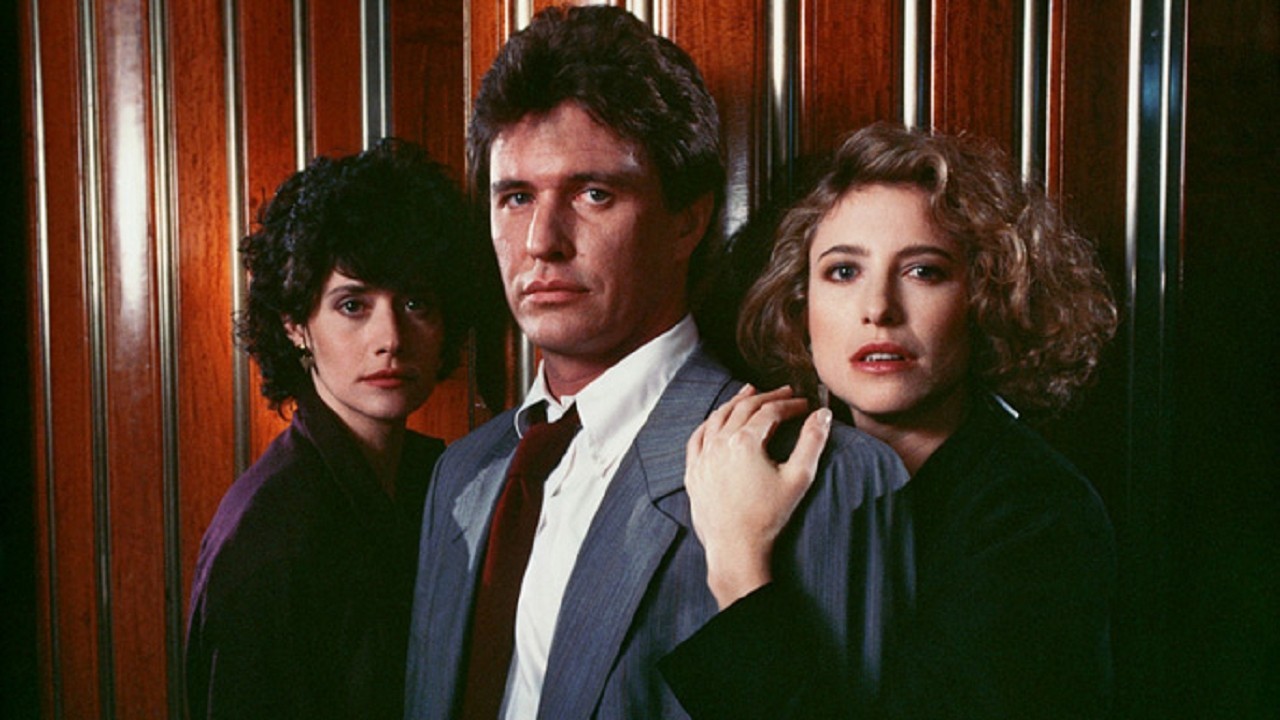
After witnessing a murder, a woman is taken under the protection of an NYPD detective. She is stalked by the murderer, hoping to silence her before he is ID’ed, and the blue-collar police officer falls for his high society charge in the process. This is the high-concept premise of the 1987 thriller Someone To Watch Over Me.
A paint-by-numbers thriller, it was a low-key choice for such a technically minded filmmaker like Ridley Scott. And while the film bears Scott’s penchant for neo-noir aesthetics, the plot is predictable, the acting stiff, and it’s a largely unengaging film.
The exception here is Lorraine Bracco’s standout performance as the detective’s wife, who infuses the stock character of a police officer’s long-suffering wife with energy and imagination. But a good supporting performance can’t save a standard thriller, least of all when it’s made by one of the greatest directors of the 20th century.
21. The Counselor (2013)
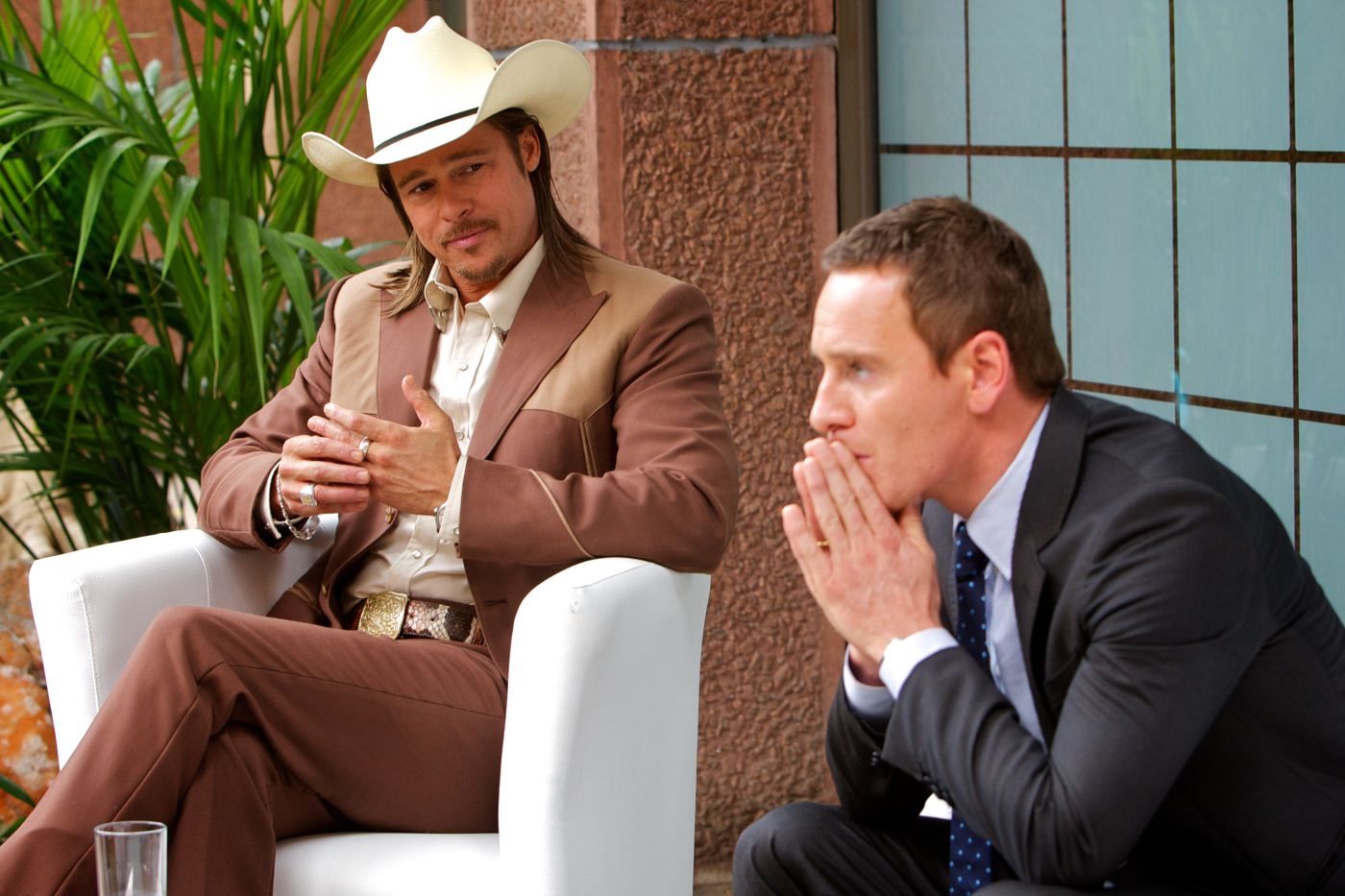
On paper, the combined talents of writer Cormac McCarthy and director Ridley Scott sounds like a win-win proposition: one of the most critically acclaimed authors of modern times had written his first original script and a master of film was helming its production. So what went wrong?
The story is simple enough: trying to shore up money for his upcoming wedding, an attorney enters a deal with a Mexican cartel to smuggle a large amount of drugs into the country.
What follows is perhaps why the film wasn’t a success, either commercially or critically: it’s a tragedy, with most of the main characters, innocent or otherwise, either unceremoniously murdered or left to take the fall in the end. Combine this with Scott’s stylish but hollow direction and McCarthy’s crisp dialogue but bleak script and you have a film that’s unappealing to audiences and unsatisfying to its viewer.
20. 1492: Conquest of Paradise (1992)
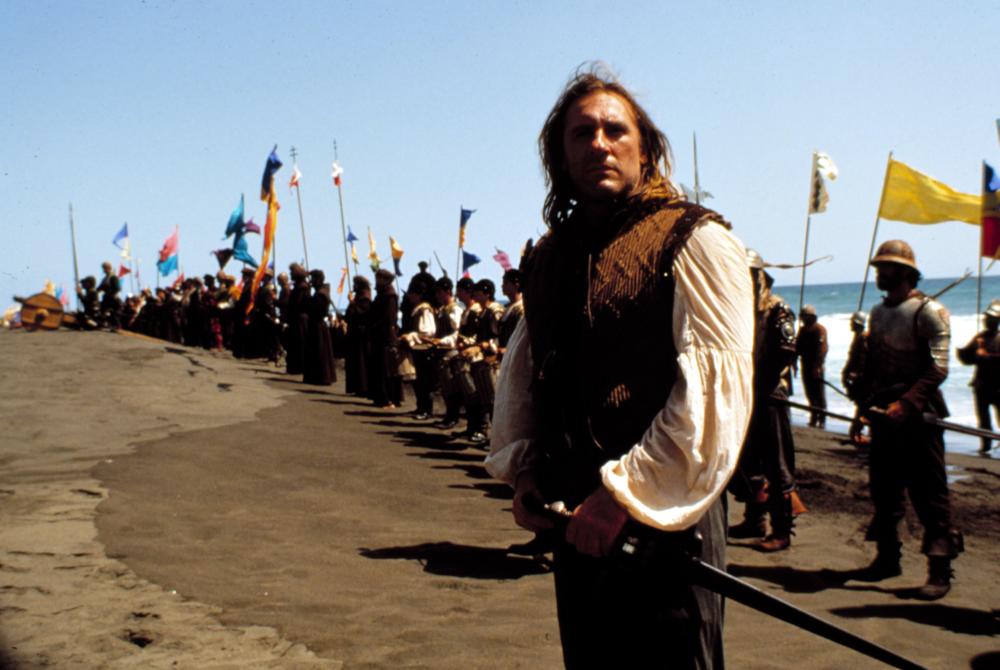
Aside from his contemporary James Cameron, if there’s one thing Ridley Scott knows what to direct, it’s big-budget films. Adjusted for inflation, most of his films have averaged between $50 to $100 million apiece to produce, and (for good or ill) all of it is evident on-screen. For the 500th anniversary of Columbus’s discovery of “The New World,” Scott directed a film to commemorate this historic discovery and, with a budget of $47 million ($84 million in 2017 dollars), created 1492: Conquest of Paradise.
While a lavish production, the film took a beating at the box office for several reasons: released at the same time at the (earlier-released) Christopher Columbus: The Discovery, audiences confused the two films and were already fatigued by the premise when Scott’s version sailed into theaters; the casting of never-popular-in-America star Gerard Depardieu as Columbus failed to capture audience interest; and its negative reviews sealed its fate as a box-office disaster, where it recouped only 15% of the budget during its theatrical run. With no critical reassessment in sight, it’s clear that Scott’s vision of Columbus’s journey remains dead in the water.
19. White Squall (1996)
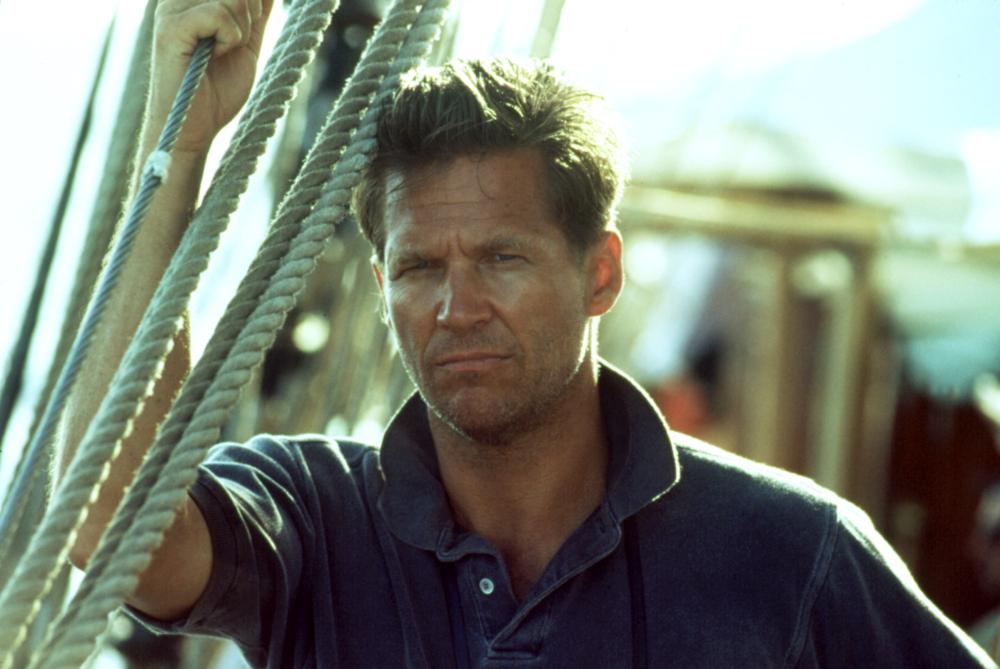
Undeterred by his previous aquatic film’s sunken prospects, Scott re-entered dicey waters with yet another seafaring adventure, this time detailing the ill-fated voyage of a schooner that was out on an educational trip and subsequently sunk by a white squall in 1961. Focusing on the interpersonal relationships of the novice seamen and their hard-nosed teacher (played by Jeff Bridges), White Squall mixes drama with action as the initially combative seafarers must pull together when disaster strikes.
Perhaps because of the more intimate story involved, White Squall succeeds in places where Scott’s previous attempt at drama set on the high seas failed. Featuring a commanding performance by Bridges and harrowing scenes of a seacraft at distress that puts its young crew members in peril, it’s a serviceable action-thriller that never reaches the heights of epic storytelling or drama of which Scott has proved that he more than capable of achieving.
18. Robin Hood (2010)

Robin Hood is a character from English folklore whose story has been told and retold seemingly countless times throughout history–in ballads, plays, literature, and films both live action and animated. While there have been many successful adaptations throughout 20th century cinema–most notably Walt Disney’s animated version in 1973 and the live-action Robin Hood: Prince of Thieves in 1991–Ridley Scott still hadn’t made one, so he embarked on his own retelling of the tale in 2010’s Robin Hood.
While a financial success (to a point: it cost $200 million to produce and made $317 million at the box office), the film received mixed reviews and quickly faded in filmgoer’s memories. Perhaps the biggest detriment of the film was its gritty and dour mood: instead of presenting Robin Hood as a plucky outlaw, Scott instead chose to make Hood (played by Russell Crowe) a disillusioned veteran of the king’s army, turning outlaw after the political situation goes sour.
Besides this, Scott’s historical attention to detail of medieval conditions is impressive but overwhelms what most audiences identify as a lighthearted folk tale; and the story itself becomes muddled with political intrigue instead of portraying the series of Robin Hood’s adventures that audiences are familiar with. Always an impressive filmmaker, Scott sometimes doesn’t see the forest for the trees–and when the setting is Sherwood forest, he missed them entirely.
17. Black Rain (1989)
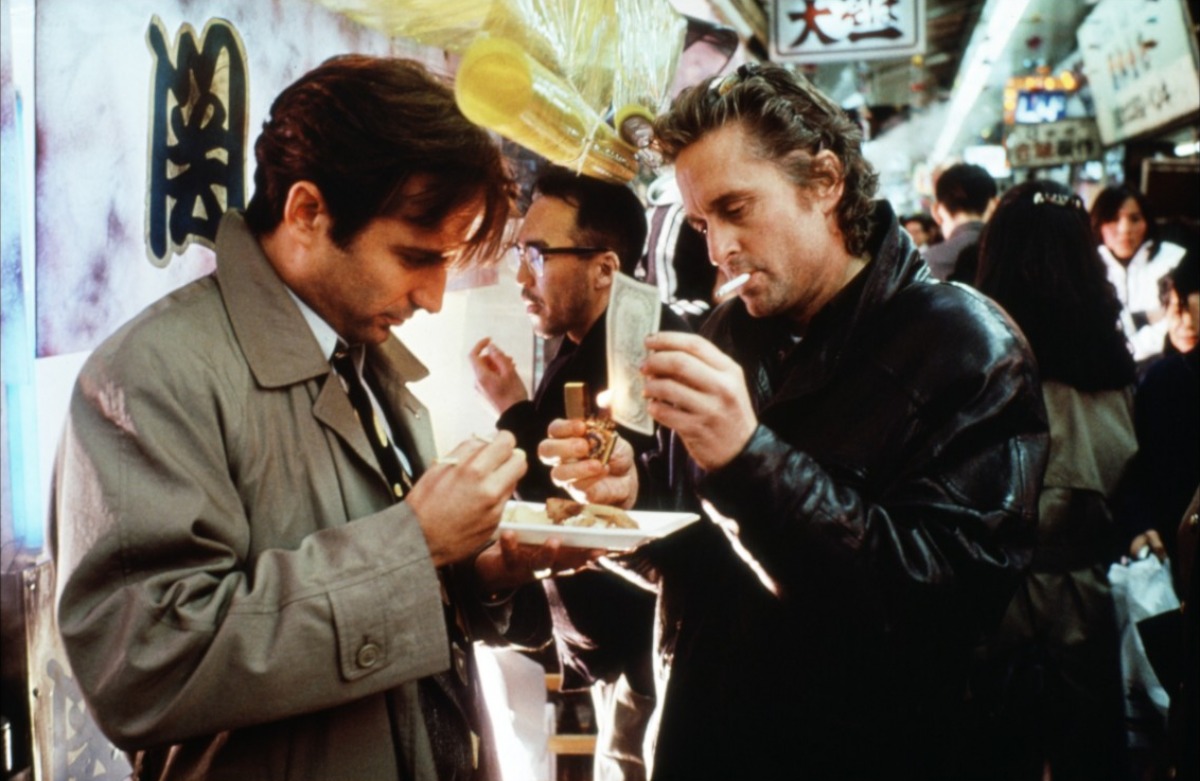
New York police officer Nick Conklin (Michael Douglas) is targeted by an internal affairs investigation that suggests he has been taking money from criminals, and his financial difficulties don’t help to prove his innocence.
After taking down a Yakuza gangster, Nick and his partner are allowed to escort him to Japan where he is being extradited. After losing him, however, Nick is allowed to join the investigation of the Osaka police department. From there, Nick dives into the Japanese underworld where he discovers a counterfeit ring, and violent retribution follows.
As with most of Scott’s films, Black Rain is stylish, portraying modern-day Osaka bathed in the same rain-soaked neon glow as Los Angeles was in Blade Runner. However, the story itself is a boilerplate crime thriller that never rises above its macho tendencies. As this list bears out, Ridley Scott rarely errs in his aesthetic and almost always produces sharp, clean, interesting-looking films. However, he also tends to prefer style over substance, and Black Rain is a perfect example of this peculiar blind spot.